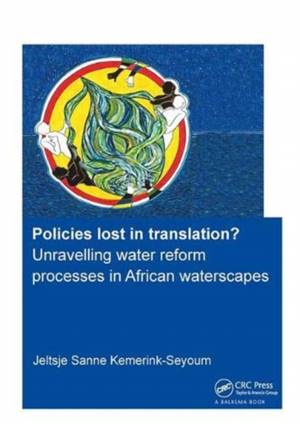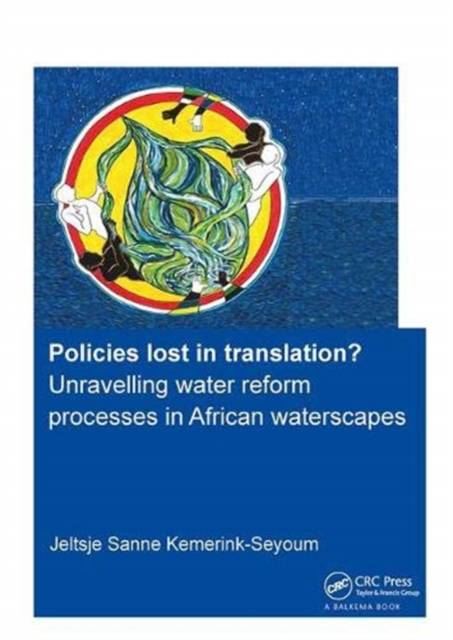
- Retrait gratuit dans votre magasin Club
- 7.000.000 titres dans notre catalogue
- Payer en toute sécurité
- Toujours un magasin près de chez vous
- Retrait gratuit dans votre magasin Club
- 7.000.000 titres dans notre catalogue
- Payer en toute sécurité
- Toujours un magasin près de chez vous
Policies Lost in Translation? Unravelling Water Reform Processes in African Waterscapes
Jeltsje Sanne Kemerink-SeyoumDescription
Since the 1980s a major change took place in public policies for water resources management. The role of governments shifted under this reform process from an emphasis on investment in the development, operation and maintenance of water infrastructure to a focus on managing water resources systems by stipulating general frameworks and defining key principles for water allocation.
This interdisciplinary research examines how this water reform process unfolds within four African waterscapes that are historically constituted by natural and social processes. The study analyzes the interplay between public policies designed and implemented by government agencies and the institutions that govern access to and control over water resources among groups of agricultural water users.
The findings of this research show that the water reform policies have led to similar outcomes in dissimilar contexts and that water policy only to a limited extent leads to progressive institutional change concerning agricultural water use, especially in this neoliberal era. Moreover, this research shows that excluding targeted investments in the development of hydraulic infrastructure for historically disadvantaged groups has narrowed the options of the governments to redress the colonial legacy and the capacity of small-scale farmers to move their livelihood beyond subsistence.
Spécifications
Parties prenantes
- Auteur(s) :
- Editeur:
Contenu
- Nombre de pages :
- 198
- Langue:
- Anglais
- Collection :
Caractéristiques
- EAN:
- 9781138381704
- Date de parution :
- 27-09-18
- Format:
- Livre relié
- Format numérique:
- Genaaid
- Dimensions :
- 175 mm x 246 mm
- Poids :
- 452 g







